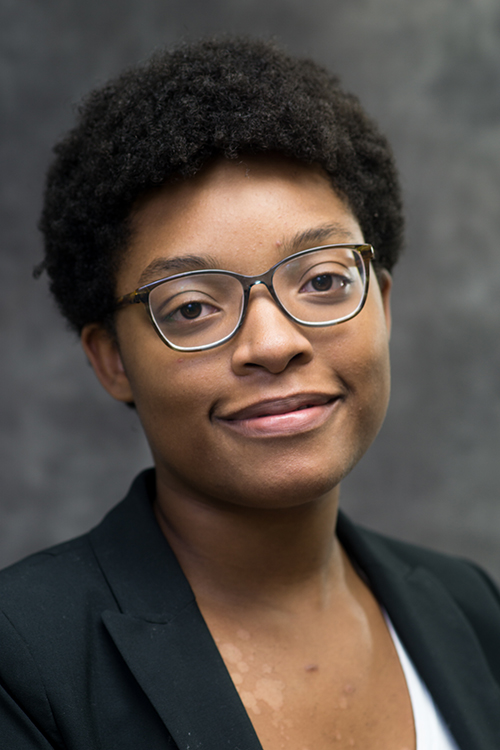
Posted on May 11, 2020
Taylor Crawford has a lot to look forward to after she graduates this May with a BS degree in biology. Taylor won the prestigious Postbaccalaureate Intramural Research Training Award (IRTA) to participate in a program at the National Institutes of Health (NIH) in Bathesda, MD. Taylor will be working for two years with Dr. Judith Kassis in the National Institute of Child Health and Human Development studying how epigenetic events regulate gene expression during development and cell differentiation.
Taylor says:
“This program is designed to give opportunities to first-generation and minority students to gain significant research experience and to help with admittance into PhD programs. During my time in this program, I have had the opportunity to complete the 2019 Summer Research Institute, present at several national research conferences, and to apply to PhD biomedical science programs. The Summer Research Institute was particularly special because I was able to continue my work in Dr. Katula’s lab but also I worked in Dr. Nadja Cech’s medicinal chemistry lab. During this summer, I was able to navigate my interests in research and I learned important skills from both experiences.
“My experience in this program has been a major stepping stone towards shaping my career in biomedical sciences and I have been able to build a network of other scholars and professionals in this field. This is also my third semester being an undergraduate researcher in Dr. Katula’s lab. My research looks at the effects of an herbicide, glyphosate, on human osteoblast stem cells. Specifically, how glyphosate affects reactive oxygen species (ROS), the NF-kB signaling pathway, and DNA methyltransferases (DMNTs). This research includes many techniques in cellular and molecular research such as cell culture, western blot analysis, transfection techniques, RNA extractions, and qPCR. Dr. Katula has been an amazing mentor who has supported my time in the McNair program and has given me opportunities to not only expand my skills in molecular research but also learn how to think and act like a future scientist. I am so excited to begin my work at NIH and I feel so blessed to have had mentors and professionals who have supported and shaped me during my time at UNCG.”
Dr. Katula has only praise for Taylor and was particularly impressed with her research abilities and personal initiative.